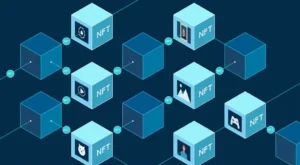Introduction to Non-Fungible Tokens and NFT Law will introduce the viewer to basic concepts around non-fungible tokens (“NFTs”) and some of the most common legal issues that arise in connection with the creation and sale of NFTs. The course describes the core feature of NFTs (non-fungibility) and compares them with fungible tokens. Viewers also will learn about the technical format for NFTs as well as a brief history of NFTs. The course also covers special programming characteristics of NFTs.
Next, the course examines intellectual property issues related to NFTs including identification of IP, assessment of IP assignments during the NFT creation process, evaluation of the transfer of IP during the sale of the NFTs, and IP issues related to NFT marketplaces.
Finally, the course covers the view of the Securities and Exchange Commission of NFTs and examines securities law issues for NFTs including the application of the Howey test to NFTs. The securities law section concludes with a review of the first NFT securities class action, Friel v. Dapper Labs, and a recent motion to dismiss ruling.
1 CLE Credit Hour:
AZ, CA, MD, FL, HI, MA, MI, NY, OH, SD, TX, UT, VA, DC
Pending Approval:
AL, CO, GA, ID, IL, MD, NJ, NC, PA
-
 Daniel Payne
Daniel PayneMr. Payne has developed an expertise in advising crypto companies in the myriad issues they face in the current unsettled U.S. regulatory environment. As President of Blockade United, Mr. Payne currently serves as counsel and strategic advisor to a family of companies with traditional business models (debit cards, telehealth, physical security, etc.) that incorporate blockchain technology and cryptocurrency in order to decentralize control and provide opportunities for the public to help disrupt industry. Mr. Payne’s work is incredibly varied, including advising on the potential application of the securities laws to business operations, creating a compliance framework, drafting and revising contracts, setting up overseas operations, and performing diligence to assist with recruiting as well as mergers and acquisition opportunities. Mr. Payne also serves as advisor to Node Governance, a Swiss company dedicated to helping crypto companies decentralize governance of their blockchains and digital assets. In his previous role as a shareholder and leader of Murphy & McGonigle’s FinTech & Blockchain Practice Group, Mr. Payne had a diverse range of crypto clients. He assisted a large public company in developing a security token offering along with a platform for trading the securities. He also advised numerous companies on securities law risks associated with distributing, issuing, selling, or otherwise relying on cryptocurrencies and NFTs in various business models. Apart from his crypto practice, he also assisted financial services firms and public companies facing civil litigation and regulatory enforcement matters, as well as counseling clients on compliance with industry regulations. Earlier in his career, Mr. Payne defended mortgage originators and RMBS sponsors in litigation and government investigation spawned by the 2008 financial crisis. The team had numerous important wins, including the dismissal of monoline bond insurer plaintiffs from a $1.8 billion lawsuit, favorable settlements, and protection of sensitive client information in discovery. Mr. Payne is a 2009 graduate of the University of Richmond Law School, where he was a John Marshall Scholar.

